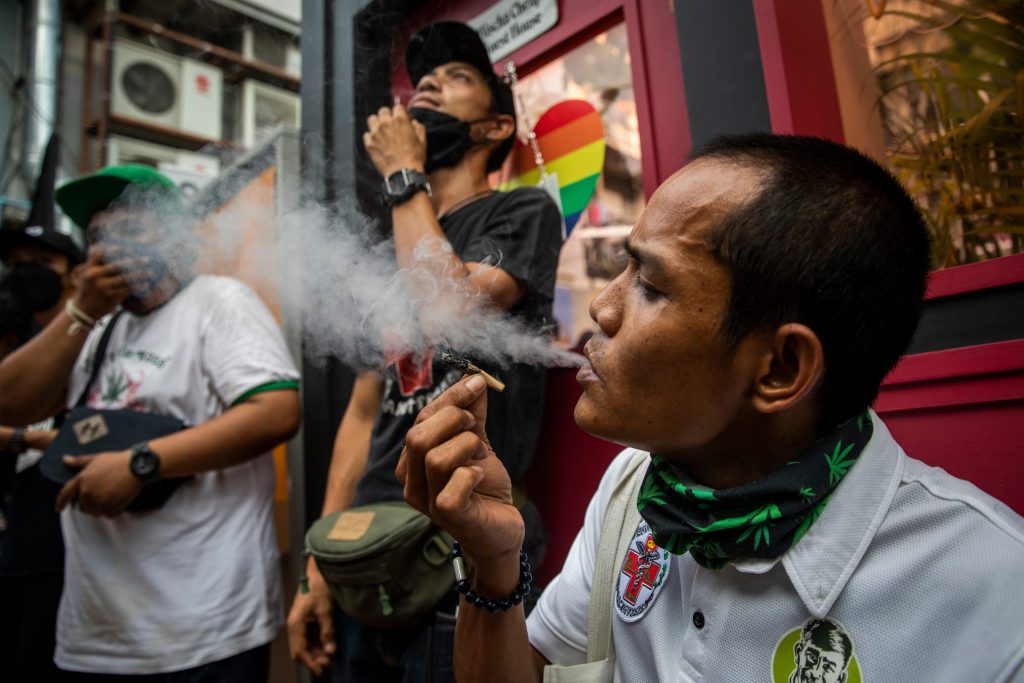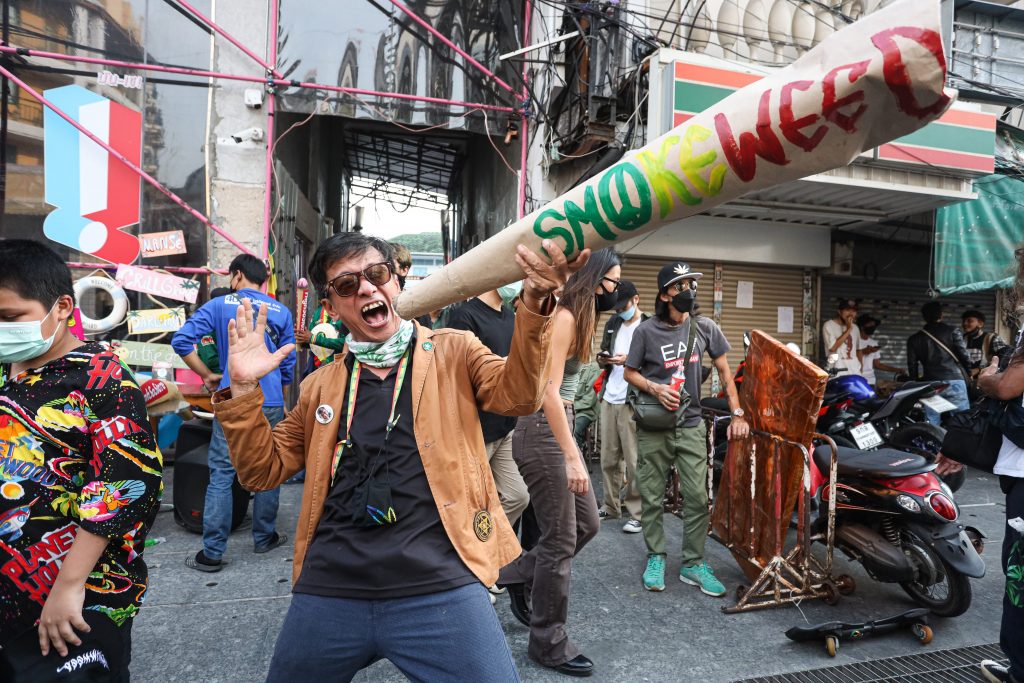- Growing and selling weed is now legal in Thailand, the first country in Asia to legalize cannabis.
- But cannabis can only be consumed for medical purposes, and getting high in public is illegal.
- You won't be welcome in Thailand if you come to smoke a joint, its Health Minister said.
Thailand has become the first country in Asia to legalize the growing and selling of cannabis, a move that its government hopes will kick off a $2 billion industry.
But recreational usage of the plant is still banned, Thailand's Health Minister Anutin Charnvirakul said in a CNN interview, which the outlet said was conducted just before the law came into effect on Thursday.
Instead, Thailand allows the use of marijuana for medicinal purposes, which has been legal since 2018. "If [tourists] come for medical treatment or come for health-related products, then it's not an issue," Anutin said.
If a tourist wants to travel to Thailand so they can"smoke joints freely," then "it's wrong," he continued.
"Don't come. We won't welcome you if you just come to this country for that purpose," Anutin told the outlet.
Under Thai law, anyone caught getting high in public is considered causing a disturbance and would be subject to up to three months in prison or a $720 fine, per The Bangkok Post.
"There has never once been a moment that we would think about advocating people to use cannabis in terms of recreation, or use it in a way that it could irritate others," Anutin told CNN.
To boost the local cannabis industry, Thailand also says it's giving out 1 million cannabis plants so people can plants at home. There's a restriction, though — plants produced in the country can't contain more than 0.2% of tetrahydrocannabinol (THC), the psychoactive ingredient that makes you high.
Anyone who grows plants at home must also register with the country's Food and Drug Administration or through the government's "Plant Ganja" app. Getting caught growing cannabis without a permit could result in a three-year prison sentence or an $8,600 fine.
Still, the government hasn't announced any plans to police or conduct checks on what people grow and how they choose to smoke at home.

The legislative change also means that Thailand is releasing around 3,000 inmates who had been convicted of cannabis or hemp-related charges.
It also could herald a shift in the country's overall stance on drugs. Thailand has for years upheld strict drug laws and punishes the smuggling or production of drugs like heroin, cocaine, and meth with the death penalty or life in prison.
Until Thursday, cannabis production was previously punishable by up to 15 years in prison or a $43,000 fine.
